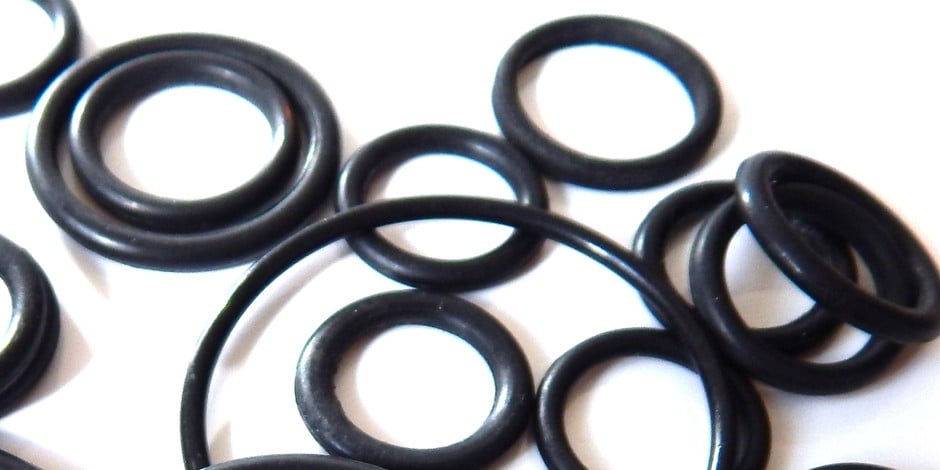Buna vs. Viton O-Rings: What’s Best for My Pump?

Shawn Glover, VP of Sales, Dec 8, 2020

Whether to use Buna or Viton elastomers — often referred to as O-rings, seals, or gaskets — isn’t always an easy choice. These types of elastomers are synthetic rubber parts in a pump that help prevent leakage and are critical to the durability and long-term success of a pump system.
Knowing which sealing option is right for your pump requires identifying your specific application and intended use. Let’s break down the difference between Buna and Viton elastomer materials and the role each plays in your pump’s performance.
Buna O-Rings (NBR, Nitrile)
Buna seals are standard in most pumps and work well for most cleaning and fluid pressurizing applications. This form of synthetic rubber is generally chemical-resistant, standing up to oil, fuel, and other harsh compounds.
As a rule of thumb, the more Nitrile within the polymer, the higher the strength and resistance to oils, acids, and other chemicals, but these benefits are contrasted with lower flexibility of the material. It offers excellent resistance to chemicals and superior strength, but those properties could be compromised by high temperature ranges and prolonged UV exposure.
Common commercial applications where Buna seals are used include carpet extractors, pressure washers, marine dock sprayers, misters, and hydrostatic testing.
Viton® O-Rings
Viton is a brand of synthetic rubber and fluoropolymer elastomer commonly used in O-rings and other molded extruded goods. Viton is a registered trademark of DuPont and is sometimes generically referred to as FKM.
Viton seals also feature some chemical resistance and are ideal in pumps used for agricultural, pest control, disinfection, mold remediation, and lawn care sprayers because of its resistance to hydrocarbons found in some of the compounds used. Another reason these types of applications may be more suited to Viton O-rings is because of their ability to stand up to sun exposure and other environmental conditions.
Deciding Between Buna vs. Viton O-Rings
So, is Buna better than Viton? Assuming chemical compatibility is not a factor, we generally consider Buna O-rings to be better performers because of their resistance to a characteristic known as “compression set.”
When you compress a Viton seal, it can conform to the shape it is compressed into even after it’s removed. This isn’t desirable since the job of an elastomer is to press outward onto the surface it is supposed to seal against. When you compress Buna, on the other hand, it rebounds back to its original shape once it’s removed.
Here’s an easy explanation of how a compression set works. Consider forcing a tennis ball into a square box and leaving it there for a few hours. When you remove the tennis ball, it will return to its original round shape, meaning it does not take a compression set. Next, consider forcing a ball of cookie dough into the same square box; remove it and it stays square because it takes a compression set.
While certainly not exaggerated to the extent of the cookie dough example, Viton O-rings tend to conform slightly to the shape they’re compressed into, whereas the Buna O-ring springs back to its original shape and provides a more reliable seal.
Determine Chemical Compatibility
Ultimately, you need to determine the chemicals you’ll be using. Even though Viton elastomers are often used with disinfection sprayers that use harsh chemicals, for example, that doesn’t mean Buna seals are out of the question. If you use sodium carbonate — a commonly used disinfection compound — it is compatible with both types of O-rings, so we’d recommend using Buna. Sodium Hypochlorite (household bleach), on the other hand, can degrade Buna seals, making Viton the better choice.
You can get a head start on understanding which type of seals might work best by using the Cole-Parmer Chemical Compatibility tool.
Pumptec provides both Buna and Viton as standard options for our pumps, along with other elastomer types for unique applications. It all comes down to your use, performance needs, and the fluids being pumped through your system. It’s best to speak with one of our pump experts to ensure you’re choosing the right kind. We’re always happy to help.




